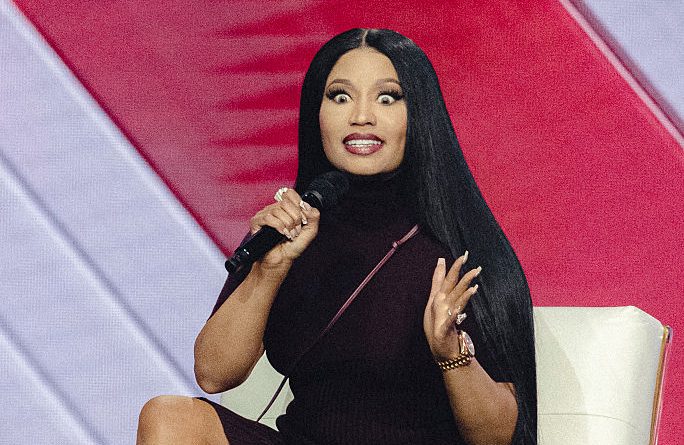Behind Beyonce’s Heat and Urban Celebrity Fragrance Deals
Share the post
Share this link via
Or copy link
by Sheena Harrison
Beyonce’s musical talent made her an international superstar, and her House of Dereon line has turned her into a fashion mogul. Now that the diva has her own eponymous perfume, fragrance industry insiders say Ms. Knowles stands to add to her ever-growing financial empire.
Beyonce’s Heat launched on Feb. 10, putting her on a long list of celebrities who have their own fragrances, including Mariah Carey, Sean “Jean” Combs, Kimora Lee and Halle Berry. Heat was the No. 1 selling fragrance at its launch, generating about $3 million in sales within its first month in Macy’s stores, according to Coty Inc., the company that produces Beyonce’s perfume.
Coty is the largest fragrance house in the world with an estimated $4 billion in annual global sales, and creates perfumes and colognes for many of the fashion industry’s top names, such as Calvin Klein and Kenneth Cole. The company also has a roster of celebrity fragrances that include Berry, Jennifer Lopez, Phat Farm and Baby Phat.
Love MadameNoire? Get more! Join the MadameNoire Newsletter
We care about your data. See our privacy policy.
Representatives from Coty could not be reached to discuss terms of Beyonce’s deal, and financial details were not discussed when it was announced in September. However, industry experts believe the megastar and the perfumer both stand to gain significantly from Heat and any future perfumes that Beyonce may launch through Coty.
“The offering from Beyonce was one of the most anticipated offerings for a celebrity fragrance and also carried a record-breaking promotional price tag to match,” said Matthew Melver, a Miami-based beauty industry consultant who has previously worked for Coty Prestige, Estee Lauder and Parlux Fragrances. “It got off to a great start.”
The fragrance industry is estimated to generate between $25 and $30 billion annually. Sales of prestige fragrances—those sold in U.S. department stores—totaled $2.48 billion in 2009, according to a release from the market research firm NPD Group Inc.
Melver says there is no typical deal for celebrity fragrances, but many stars receive royalties of 2 to 4 percent of the sold product. That royalty income, which is usually paid six to nine months after the fragrance’s launch, is often tied to promotional requirements for the star, such as doing media interviews and talk shows.
The amount of net income generated by Heat may be tempered by costs of promoting a perfume associated with one of the hottest names in the entertainment industry, Melver says. “With the yoke of one of the largest promotion budgets in history around it’s neck, we will see if the gamble paid off or just broke even.”
Sales from Heat will need to meet or exceed the product’s costs within the next year, or Coty may delay or choose not release future Beyonce-related fragrances. Melver says there’s reason to be optimistic that Heat will perform just fine since Beyonce is adored by her fans and the fragrance industry is approaching its fourth quarter, when perfume sales tend to peak.
It is believed similar deals have been struck for Berry, who launched Pure Orchid by Halle Berry through Coty in February, and Carey, whose M and Forever perfumes are produced by Elizabeth Arden.
Male celebrities who release branded colognes, such as Usher and 50 Cent, tend to fare well in the fragrance market – but men’s colognes only produce a fraction of sales compared to women’s perfumes, Melver said. “It is even harder for a male celebrity to be successful. This is mostly because of consumer psychology. Men do not typically affiliate with celebrities the way women are likely to.”
“Only someone in the league of Mr. Combs would be able to pull off something more involved and lucrative than a vanilla royalty deal,” Melver said.
Representatives for the Sean John brand declined to comment on questions about Combs’ fragrance deals. However, it’s established that his colognes have been well-received on the fragrance market. Unforgivable was the No. 1 new prestige fragrance in 2006, according to NPD. Sean John’s I Am King, which launched in 2008, and Unforgivable have both received FiFi Awards from The Fragrance Foundation, a consortium of fragrance companies.
It’s understandable that fragrance companies would want to work with major stars such as Combs and Beyonce. Consumer product companies count on celebrity endorsements and promotion deals to help bring in sales, says Elizabeth Currid-Halkett, an assistant professor of economic development at the University of Southern California.
“The public is incredibly mesmerized by some celebrities, and companies know that it’s associated with millions upon millions of dollars,” said Currid-Halkett, who is scheduled to publish a book in November, titled “Starstruck: The Business of Celebrity.”
Celebrity promotion deals tend to depend on the star’s believability, Currid-Halkett says. Style icons like Beyonce, Lee or Berry can help inspire shoppers to buy fragrances, clothing and accessories that allow fans to emulate them. And while celebrities may bring in big bucks for their branding, Currid-Halkett said such deals also help boost their public profiles. “It allows them to perpetuate their image to the world, which is the very essence of their celebrity.”
Only time will tell if Beyonce’s Heat performs well enough to spin off more fragrance deals. It will be up to Coty to decide whether her star power is compelling enough to continue generating significant sales, Melver says.
“Most celebrities these days are “employees” of the big fragrance houses, just the way a new band or group is under a major record label. They might have a contract, but the label calls the shots at the end of the day.”







